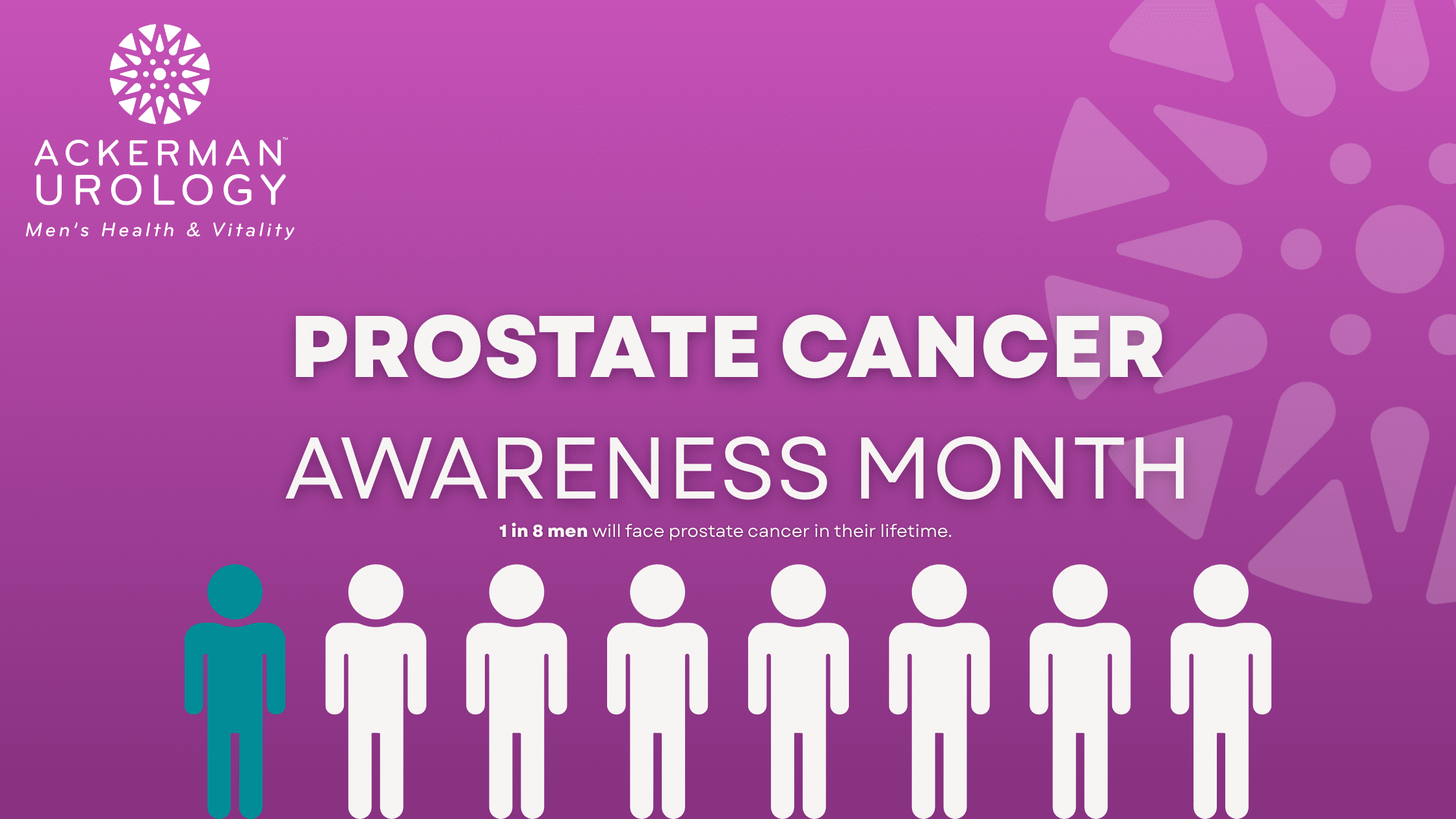
September is Prostate Cancer Awareness Month, a time to discuss the signs, symptoms, and screening options with the Ackerman team. A key Ackerman advantage is easy access to expert care in Northeast Florida, including board-certified urologists for prostate cancer screenings and cutting-edge proton therapy treatment for prostate cancer delivered by our board-certified radiation oncologists.
Prostate cancer is the most common cancer among men, excluding skin cancer, and is expected to represent about 30% of all male cancer diagnoses in 2025. The American Cancer Society (ACS) estimates that 1 in 8 men will be diagnosed with prostate cancer during their lifetime. The average age at diagnosis is 67, with higher risk observed in men over 50, African American men, and those with a family history of the disease.
So, when should men start thinking about prostate cancer screening? According to ACS guidelines, men at average risk should begin discussing screening around age 50, while those at higher risk should start at age 45. Screening typically involves a PSA (prostate-specific antigen) blood test and sometimes a digital rectal exam. Early detection is crucial: localized prostate cancer has nearly a 100% 5-year survival rate, while survival drops to 38% if the cancer has spread. At Ackerman Urology, we perform PSA blood tests to help catch prostate cancer early and guide next steps in care.
Frequently Asked Questions about Prostate Cancer
What are the most common symptoms?
· Early prostate cancer often causes no symptoms. When symptoms do occur, they may include difficulty starting or stopping urination, weak or interrupted urine flow, frequent urination (especially at night), blood in urine or semen, and erectile dysfunction. Advanced prostate cancer can cause pain in the lower back, hips, or pelvis.
Is screening necessary for all men?
· Yes. The ACS recommends men start discussing screening at age 50 if at average risk, or at 45 if at higher risk.
What’s the difference between PSMA PET and FDG PET scans for prostate cancer?
· PSMA PET scans target a protein found mainly on prostate cancer cells, making them more accurate in detecting prostate cancer than FDG PET scans, which look for glucose activity common in many cancers but less so in prostate tumors. PSMA PET is usually preferred for prostate cancer diagnosis and staging at Ackerman Cancer Center.
Does insurance cover PSA tests?
· Most insurance plans, including Florida Blue, which is accepted at Ackerman Cancer Center and Ackerman Urology, cover PSA tests when recommended by a doctor, especially based on age or risk factors. It’s best to check with your insurer.
Talk to the Ackerman team about prostate cancer risk and schedule a screening conversation today by filling out the form at ackermanurology.com or by calling (904) 490-7400.
